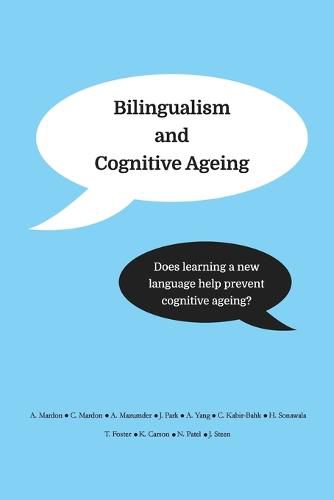Readings Newsletter
Become a Readings Member to make your shopping experience even easier.
Sign in or sign up for free!
You’re not far away from qualifying for FREE standard shipping within Australia
You’ve qualified for FREE standard shipping within Australia
The cart is loading…






This title is printed to order. This book may have been self-published. If so, we cannot guarantee the quality of the content. In the main most books will have gone through the editing process however some may not. We therefore suggest that you be aware of this before ordering this book. If in doubt check either the author or publisher’s details as we are unable to accept any returns unless they are faulty. Please contact us if you have any questions.
Language is the key to communication and connection regardless of whether it is through digital platforms, body language, or simply face-to-face conversation. Therefore, it is no wonder that so many people seek out the opportunity to learn and teach others new languages; it allows us to connect with more people across the globe. Despite this, it was widely believed in scientific circles that bilingualism was a disadvantage-something that might slow down the developing brain-rather than a social and cognitive advantage. Bilingualism and Cognitive Ageing: Does learning a new language help prevent cognitive ageing? strives to examine the recent research that disproves this out-dated theory, with a focus on how bilingualism affects our cognitive ageing. Our discussion begins with an exploration of the history of research on the cognitive effects of bilingualism and ends with a look at the common misconceptions that people hold and how they may be supported by popular culture. Along the way, the connection between specific ages and bilingualism-including when to learn a language-the effects that bilingualism has on the brain, and the most influential studies and scientists that have brought us to these conclusions will also be discussed. Bilingualism and Cognitive Ageing: Does learning a new language help prevent cognitive ageing? is a brief exploration that strives to educate the general reader on the history and science behind bilingualism and cognitive ageing.
$9.00 standard shipping within Australia
FREE standard shipping within Australia for orders over $100.00
Express & International shipping calculated at checkout
This title is printed to order. This book may have been self-published. If so, we cannot guarantee the quality of the content. In the main most books will have gone through the editing process however some may not. We therefore suggest that you be aware of this before ordering this book. If in doubt check either the author or publisher’s details as we are unable to accept any returns unless they are faulty. Please contact us if you have any questions.
Language is the key to communication and connection regardless of whether it is through digital platforms, body language, or simply face-to-face conversation. Therefore, it is no wonder that so many people seek out the opportunity to learn and teach others new languages; it allows us to connect with more people across the globe. Despite this, it was widely believed in scientific circles that bilingualism was a disadvantage-something that might slow down the developing brain-rather than a social and cognitive advantage. Bilingualism and Cognitive Ageing: Does learning a new language help prevent cognitive ageing? strives to examine the recent research that disproves this out-dated theory, with a focus on how bilingualism affects our cognitive ageing. Our discussion begins with an exploration of the history of research on the cognitive effects of bilingualism and ends with a look at the common misconceptions that people hold and how they may be supported by popular culture. Along the way, the connection between specific ages and bilingualism-including when to learn a language-the effects that bilingualism has on the brain, and the most influential studies and scientists that have brought us to these conclusions will also be discussed. Bilingualism and Cognitive Ageing: Does learning a new language help prevent cognitive ageing? is a brief exploration that strives to educate the general reader on the history and science behind bilingualism and cognitive ageing.